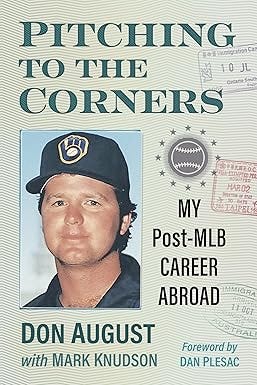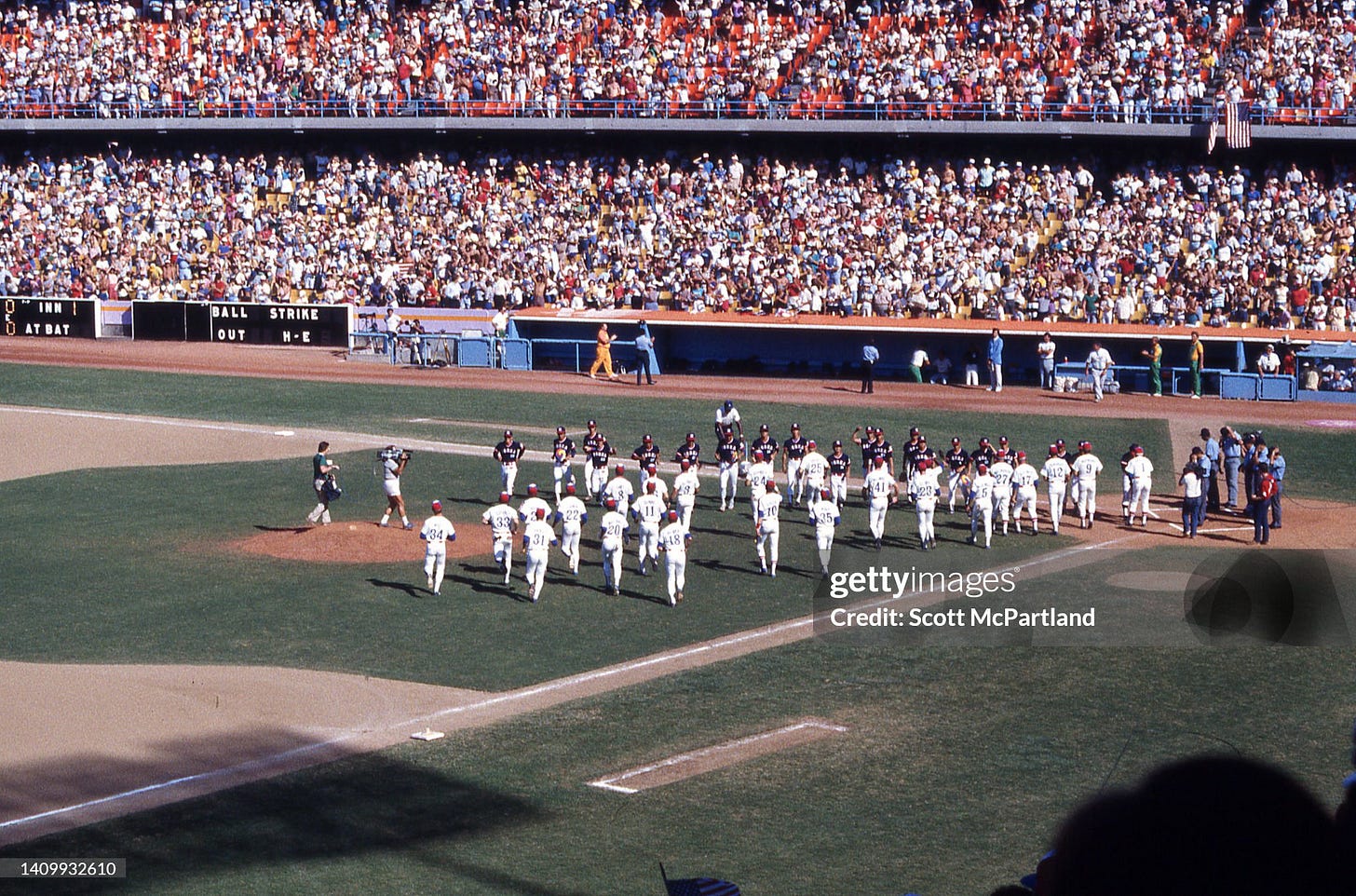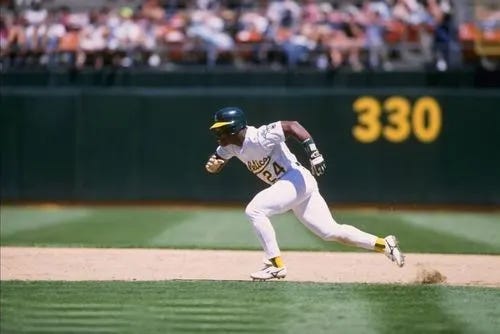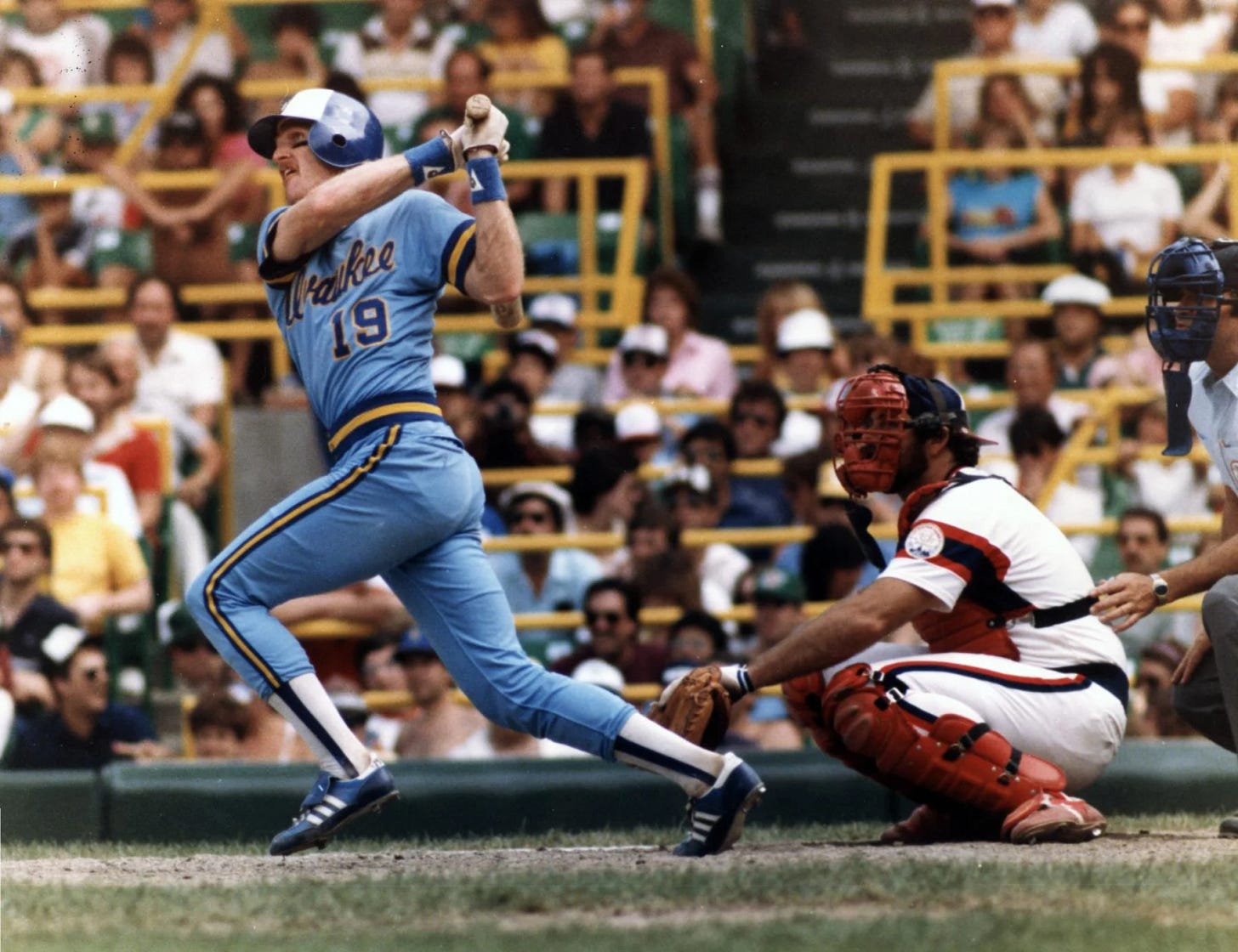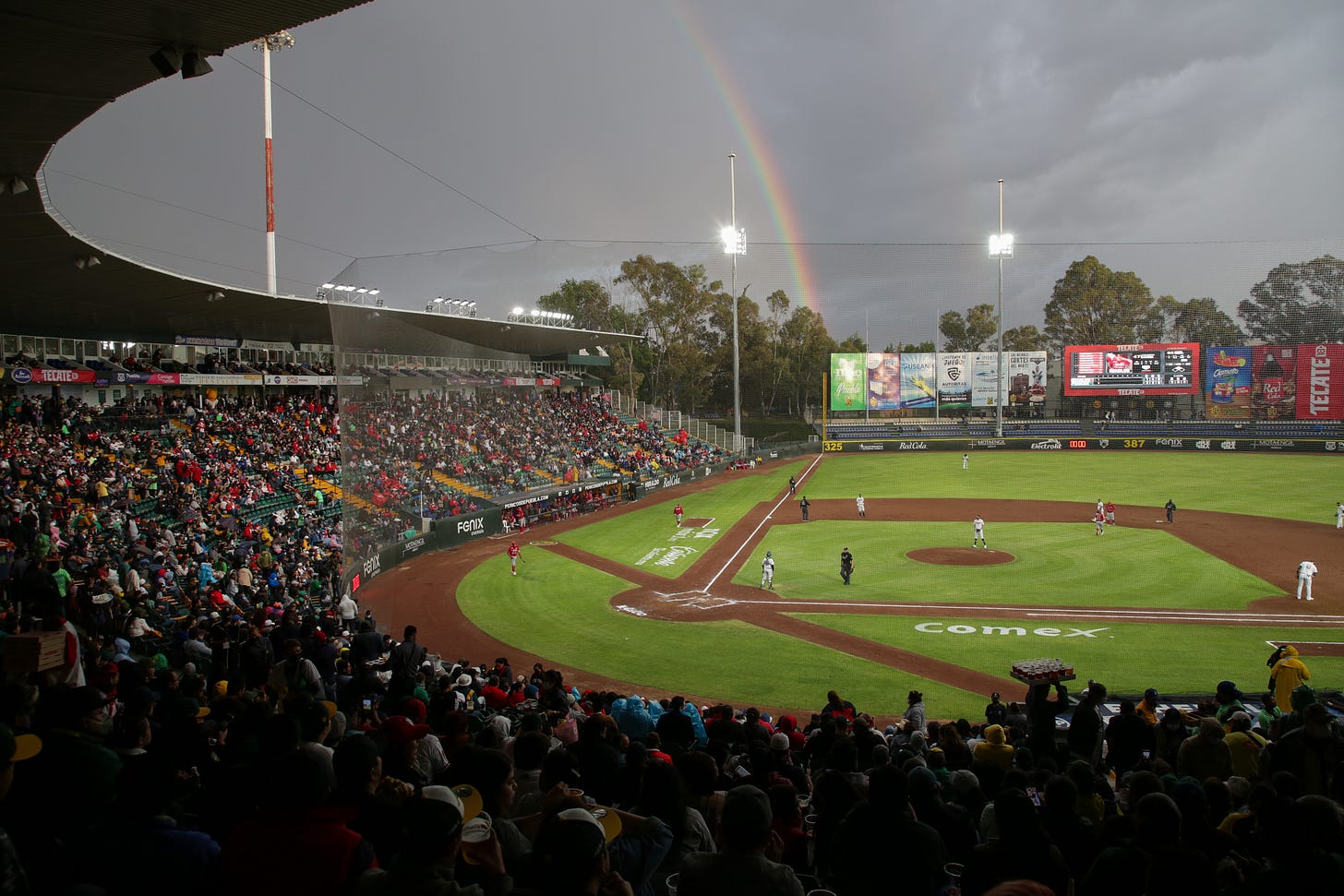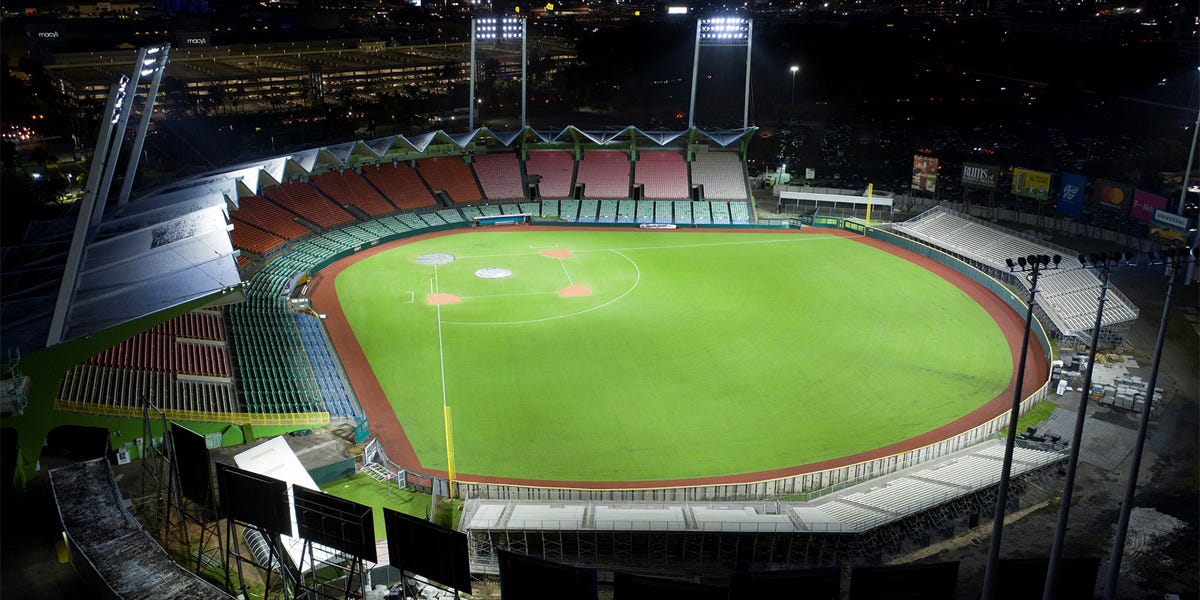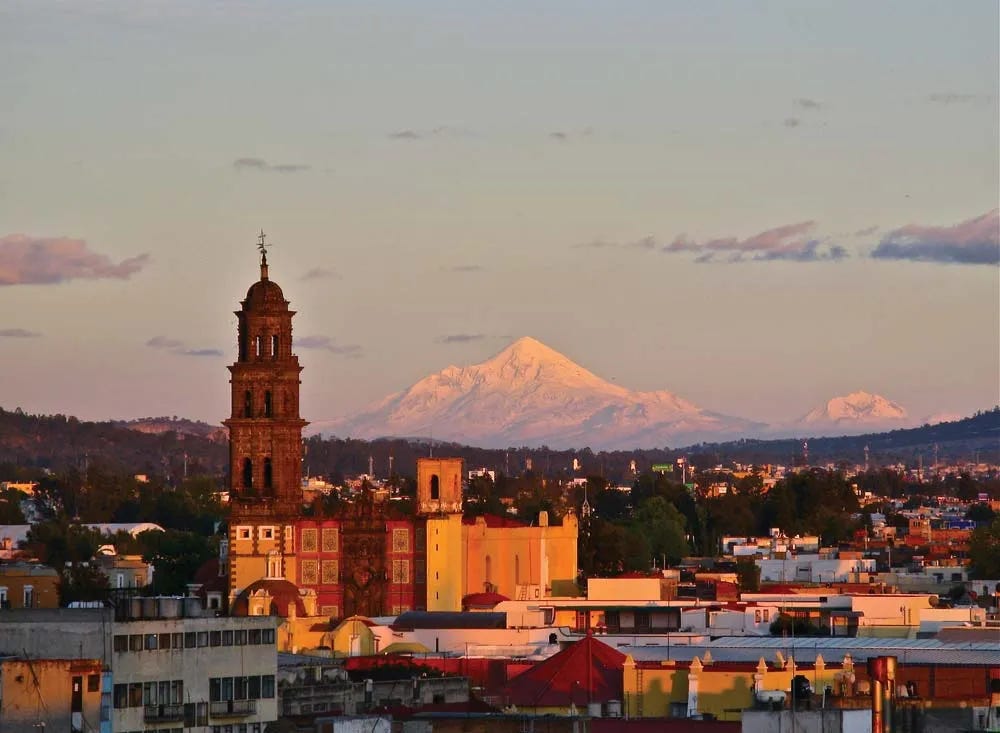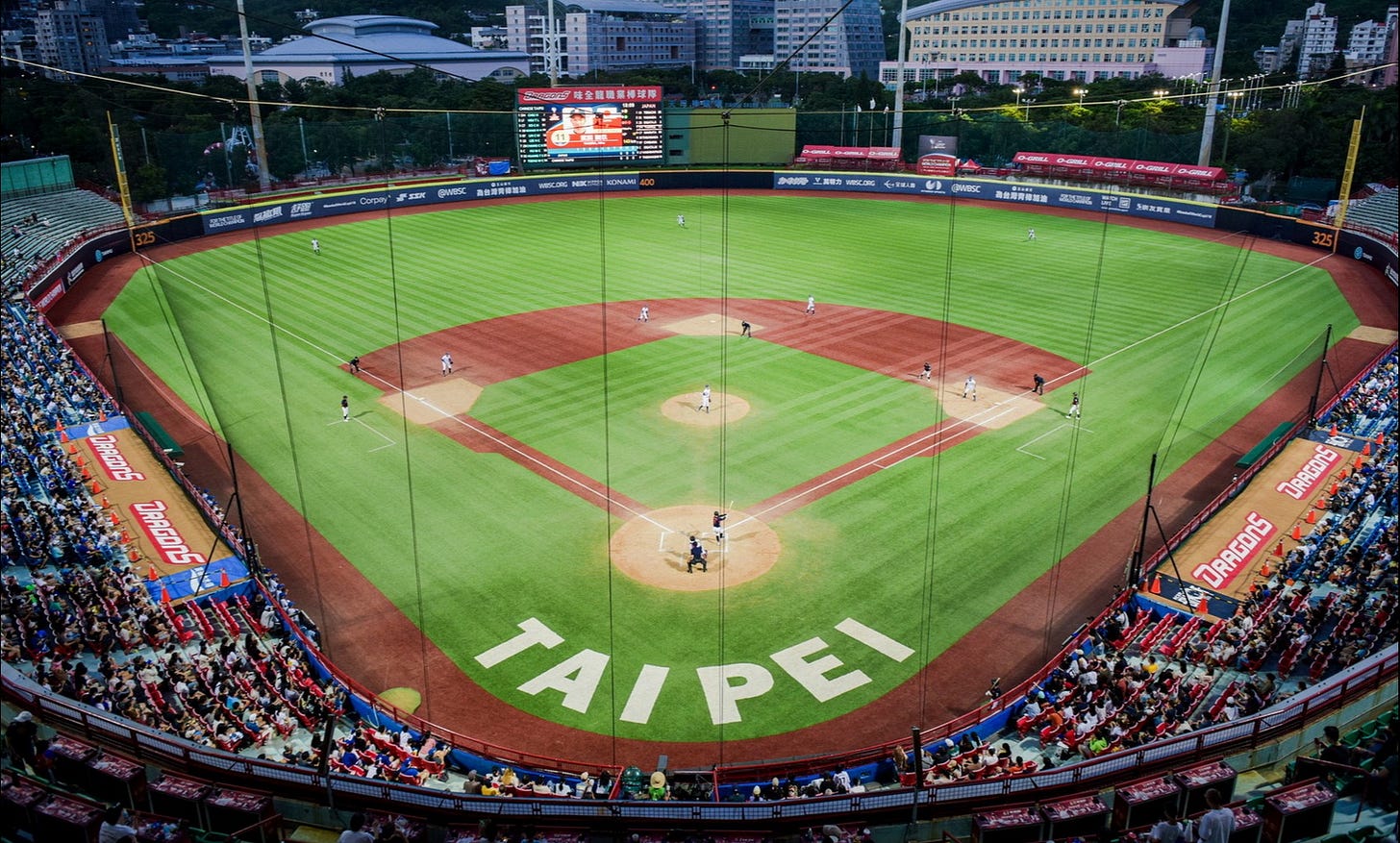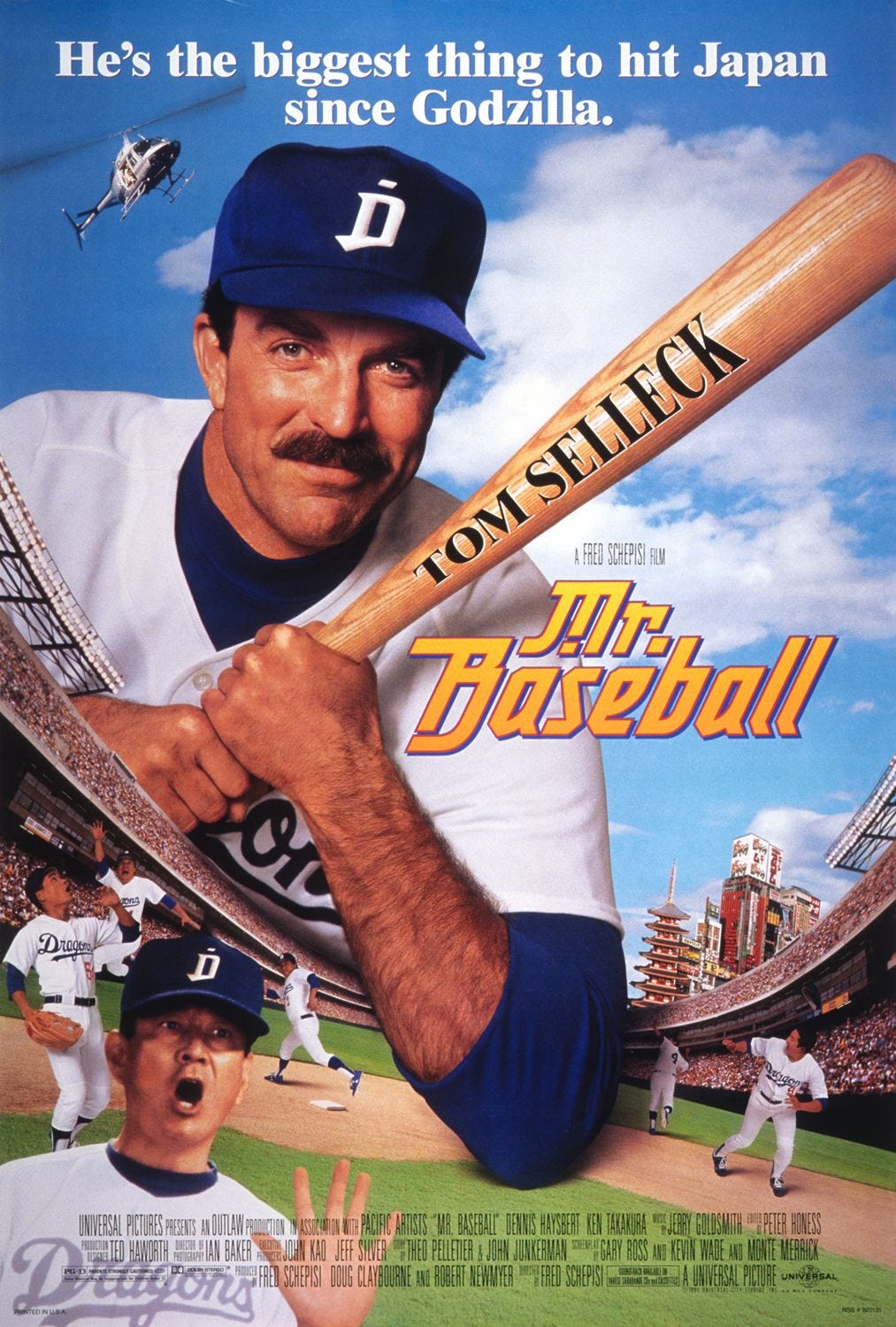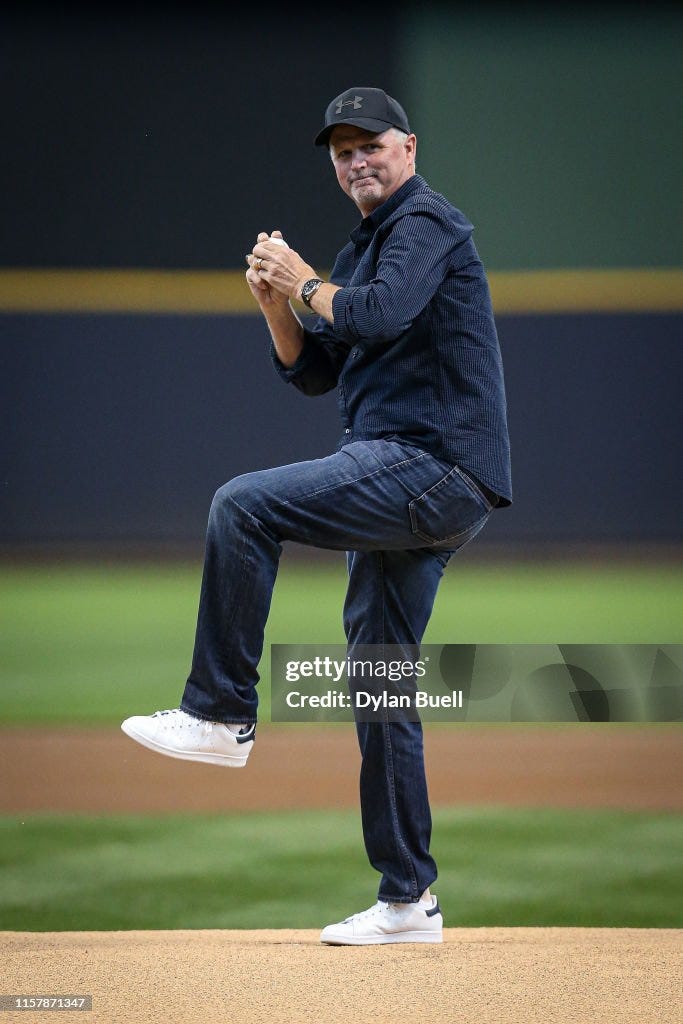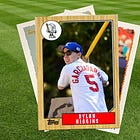Interview #49: Don August
1984 USA Olympic baseball, 1st round draft pick, Milwaukee Brewer, international star
Intro
Don August is a former Major League Baseball pitcher, appearing for the Milwaukee Brewers 1988 to 1991. But that’s only a small part of his baseball story. A first-round draft pick by the Houston Astros in 1984, he was part of the USA Olympic baseball team that won a silver medal in Los Angeles that same year. In 1986 he was traded to the Brewers as the Astros looked for veteran pitching help in a season they ultimately went to the NLCS, losing to the eventual champion New York Mets. He finished fourth in AL Rookie of the Year voting in 1988 with a 13-7 record and 3.09 ERA over 148 innings.
When the Brewers shook up the front office after 1991, he was released and caught on with a few clubs’ minor league systems. Then there was the strike of 1994. He ended up playing two seasons in Mexico trying to get an MLB contract. When that didn’t happen, he headed to Taiwan where he pitched several seasons trying to work his way back to MLB or to Japan, but ultimately wound up in Italy for his final season and was finished with pro ball in 2000.
Don is an amazing storyteller and has an incredible library of stories to tell. So it made sense that he’d write a book, and that’s just what he did. He teamed up with former teammate Mark Knudson to co-write it, and this September Pitching to the Corners: My Post-MLB Career Abroad was released. After I interviewed Mark about the book and his own professional baseball career, he got me in touch with Don. We talked for about an hour-and-a-half, which is twice as long as these normally go and I could’ve sat there listening for another two hours if dinnertime didn’t approach.
So this interview is a perfect teaser to getting you interested in the book, because a lot of stories end with “and the rest is in the book” and a whole lot more didn’t even get brought up. I’ve got mine on order, still waiting for Amazon to deliver it, but I’m excited to read it. It should be a unique baseball story that covers a side of baseball that’s mostly hidden except a few feature magazine articles here and there, so getting a first-hand account of international baseball life as an American will be fun to read.
You can buy Don’s book by clicking this link to get to Amazon. You can also follow Don on Twitter: @DonAugust38
The Draft, the Olympics and the Majors
1984 was a great year for you. You got drafted in the first round and then played for the US Olympic team. There’s no better way to start your career.
Right. I was finishing out college (at Chapman College in CA). My team had a really good year. I had an outstanding year. During that year, I had plenty of scouts who were watching me and following me. I was the first-round draft pick of the Astros. In early June, I went to Louisville, KY to meet Team USA, where there were 31 of us that had to be trimmed down to 20 players for the Olympic roster. So we went on this mega-incredible road trip. 30-something cities, 30-something games in 30-something days, man. It's just like, bam, every day we're in a new city. I made the cut and I was in the Olympics of ‘84 out there in Los Angeles, very exciting. Big time for all us guys who are still college players, still amateur status back then. We played the Olympic tournament there in Dodger Stadium, stayed there in the Olympic Village and just had these incredible memories.
You were barnstorming. There were only 20 guys on the roster? So there weren’t many pitchers.
We had 8 pitchers and 12 position players.
So you pitched a lot.
I ended up pitching in three of the five games. The first game, we played Taipei, which is Taiwan, they have to go by Chinese Taipei, you know, for politics. Our pitcher went a complete game and we won 2-1. Then the next game, game 2, was against Italy and we won 16-1. Coach got me in in the 9th inning. I was pumped that I got in to hold that 16-run lead. I was like, man, I'm in the books. I pitched in Dodger Stadium. I'm in the books that I was in the Olympics in Los Angeles. The next game is against the Dominican Republic. I came in in the 9th again with a 12-0 lead. Oh cool, I got in two games. I was happy about it.
The medal round game, we had to win to go to the gold medal round. We're gonna play Korea. And I thought there's no way I was gonna be pitching, so as the game is about to start I'm wearing my tennis shoes and I didn't have my glove or nothing ready. And Coach (Ron) Dedeaux comes up, along with the pitching coach (John) Scalinos, “Oggy, you're the first guy for relief. Are you ready?” I go, ‘yeah, yeah, I'm ready. Sure, sure.’ So as soon as they turned their back I ran back up the tunnel and got my cleats on, put my protective cup on and got my glove and hustled on out to the bullpen.
I came in in the 5th inning in a tie game and I pitched the rest of the way. Ended up winning the game, so I got the win that put us into the gold medal game. So those were the three games I pitched in. Against Japan, hate to say we lost, got a silver medal. But on any given day, any team can do whatever. In the pre-Olympic tour, we played Japan seven times. Wasn't their regular team, but they had some players end up playing on the Olympic team. We beat them six out of seven times easily. But on that Olympic medal game, they played better than us that day.
Nothing wrong with a silver medal.
I know. People go, oh, just a silver medal. I guess it kind of sucks being the second best in the world at something, you know? But I think about it a lot. You think, God, silver medal. Could have been a gold if we didn’t lose that day.
You didn’t spend much time in the minors before your major league debut. The Astros were good in the mid-80s.
Well, the reason we got traded, me and Mark Knudson in’ 86, the Astros were looking for that veteran pitcher. The Astros did come in first place and the Brewers were, it was a few years after their World Series appearance (in 1982), they're kind of on a downhill swing, and they're starting to rebuild and get some young players which included us two.
What did you feel when you got traded? You’re doing well in the Astros system and you're pitching for a franchise that's really good.
At first I was disappointed because I was just drafted in ’84, I was the top draft choice, the top prospect. I was a bonus baby, they had some money invested in me. I was going to make the major leagues unless I somehow blew it on myself. And then my second year in the minors, I was still pitching good. Between the two teams, I was still second in the Pacific Coast League in ERA.
I feel like I was right there to make the major leagues with the Astros, and all of a sudden I'm at a new organization, just another guy. I wasn't their first-round draft pick. They got all their young guys fighting to get up there, too. Also I'm a new person having to jump in there and get to know the organization. The Astros, I knew all the major league coaches and I knew a lot of the minor league coaches. I was really comfortable where I was at, now I’m in a brand new place.
And then you had to go pitch in Denver (starting in 1987 in triple-A).
Yeah. Thanks. That was difficult for me because my bread-and-butter pitch was the curveball. The ball just didn't bite and grab in that thin air in Denver. That was the first year that the Brewers moved their team to Denver. They were in Vancouver, so I finished up the triple-A season in Vancouver when I got traded, which is probably one of the best pitching places in North America. Big ballpark, the ball didn't carry.
Denver, in the thin air I literally saw broken bat home runs. And then Mile High was this huge stadium to make up for it, bigger fences, but that made the outfield way bigger and the balls would get through and be triples and real hard for outfielders to cover all that ground. So my ball wasn't quite breaking, I would struggle there, I almost felt like I don't know how to throw my curveball anymore. But then we’d play in Des Moines or Nashville where it was very humid, and that ball would really bite again and I’d go, there it is. But then back in Denver, I'd struggle. So I'd figure out how to pitch under those circumstances. I figured it out in that following 1988 season, I did get called up and got into the big leagues then.
And fourth place in AL Rookie of the Year voting in 1988. When you were in Denver though, did the organization accept that the numbers were going to be higher? Because I'm sure it wasn't good for development to have the pitching style so much different.
Our minor league farm director came into town to visit us about a month-and-a-half into the season in 1987, and our team ERA was at the bottom of the of the American Association. We were still winning some games, but I guess they expected we could have been winning more, they gave us a butt chewing big time, man. They said, ‘we don't want to hear nothing about this thin air.’ The pitching coach goes says, ‘God, it's kind of embarrassing being the pitching coach on this team.’ But then once Major League Baseball went into Denver, then they start talking about how the ball flies and they got the humidor thing now with the baseballs. But when we were pitching there, scuffling and suffering, they didn't want to hear nothing about that.
So the organization just thought all of you guys magically lost your stuff?
Yeah, like I wasn't as good. In ‘87 though, for the first half of the season, I'd say I struggled, but right about the second-half of the season on, I kicked butt. And then we made the playoffs and I was the number one pitcher in the playoffs. I was disappointed that when we were done playing in the playoffs, they didn't call me up in September. I thought I really deserved it, and they didn't call me up.
I wasn't too happy about that. Started the 1988 season back in the minors again. I was really disappointed. They said, don't worry, Don, you're going to be the first guy we call up, so be ready. I was called up quickly, the first week of June.
What was it like getting to the big leagues the first time?
Well, you're very, very happy. It's like, finally, I made it, it's for real. It was great for me. I'm from Southern California and we are playing the California Angels when I arrived in Milwaukee. I just barely had time to call my mom and dad, so a lot of my family and a lot of my friends back home didn't know I got called up. The game was being televised back in California where they all were going to be able to see it. So some of my friends told me later that they're putting the ballgame on as usual and it was the Brewers, didn't mean nothing to them at that point. Then they're just watching and all of a sudden, I came in in the 6th inning to pitch.
So they're watching and there's my face. That's how a lot of people figured out that I did get called up. So I did get in that game and we are losing. I pitched 2 innings, gave up no runs, and we came from behind. Dan Plesac, who did the forward of my book, did the two-inning save. So I got the win my first day there, a little extra special being broadcast back home to California.
So Milwaukee didn't make the playoffs any of the years you were there, right?
No, that first year we came two games out of first place. We were the last team to be eliminated; so the last three-game series we had to play against Oakland who end up going to the World Series (in 1989). We have three games to make up with three games to go, playing against Oakland. We won one out of three; the Boston Red Sox, who did come in first, got swept. So if we would have swept, then we could have made it a tie and could have made a little game 163 and who knows, but we came two games out of first place. In that 1989 season, we were picked to win the division.
Then after 1991 the Brewers went into a bit of a rebuild.
They kinda did. They made a trade that off-season going into ‘91, brought some players in. End of the year we had a very strong finish again, we were still 6-plus games out I think (note: 8 behind Toronto at 83-79). But we finished really strong and when the season ended, the Brewers let Harry Dalton go as the general manager. They hired Sal Bando who then the very next day fired Tom Trebelhorn. And that's where the real rebuild really began. Sal brought in a new manager. He was going to bring a lot of his type of his players in. Mark was the Opening Day pitcher in 1991 and he left. I was taken off the roster. Sal Bando called me immediately and told me he was gonna take me off the 40-man roster, which enabled me to be a free agent. So I chose to go on to be a free agent.
I signed with the Giants for that next spring. I go to spring training, they made a major blockbuster deal just before spring training where they traded out Kevin Mitchell, a perennial big-time home run hitter, to the Mariners, in exchange for three Major League pitchers. So I went to the Giants, they said I was going to get a shot at the 5th starting job or the long reliever. And they brought in three major league pitchers, so that didn't work out too good for me and I ended up getting released by the Giants. I started battling through the minors here and there and that leads into my book story.
If you look at where Don was when he got drafted with 17th pick in 1984 and then made the roster for the USA baseball team at the Los Angeles games, that’s as gilded a start to your career as you can have. The 1984 draft included hall of fame pitchers Greg Maddux (3rd pick of the 2nd round) and Tom Glavine (19th pick in the 2nd) as well as star players like Mark McGwire (1st), Al Leiter (2nd), Jay Bell (1st) and Terry Mulholland (1st). Then the USA roster included McGwire, Barry Larkin, Will Clark and Bobby Witt, who all went on to great MLB careers (Larkin in the HOF of course).
From there, he’s part of an Astros organization on the rise. From 1980 to 1986, they made the playoffs three times and consistently had a winning record with a record that included Mike Scott, Nolan Ryan and Glenn Davis. And then if he’s not traded, he’s looking at being in his prime when the Jeff Bagwell and Craig Biggio era starts.
Then he gets traded to the Brewers, and ultimately has to pitch two years in Denver and adjust to that. Then he’s released and the promising start and name recognition is faded and suddenly the jobs aren’t there like you’d expect. A lot of careers end there, and there’s nothing wrong with that. Mark Knudson had his goal of pitching for the Rockies and then was content calling it a career after that. Getting to the major leagues is still something relatively very few people have ever done, so no matter how long it lasts, it’s still an accomplishment.
But now the story gets good, because fate would send Don, a talented pitcher and Hall of Fame story teller, around the planet for nearly a decade, collecting tales and wins on three different continents in a “just one more season” approach to getting another MLB contract. Before we go international, he had a couple stories about two hall of famers I wanted to include.
Rickey and Robin
Did Rickey Henderson ever steal a base against you?
Probably did. Rickey Henderson, man, you didn't want him on base because you knew he's gonna be standing on third base before you knew it. So, I mean, you didn't want him on. You come to your set position, you look over, God, he had a tremendous lead off. A good throw, I should be able to pick him off, but no, he always got back. And then he’d get that great jump with his speed. Boom, man, he'd be stealing these bases. I'm pretty certain he did steal a base off me at some point.
So he gets on base and you're like, well, that's a double.
You had to pay attention because once he stole second base, he’d wait for guys to take their concentration off him, just turn to make that next pitch. He'd be running that next pitch after he got to 2nd. So you had to really give him the double, triple look and hold him, or else he'd be running immediately to third base. You don't want to walk a triple, you know.
(note: he had 3 stolen bases. The first time he played him, on the Yankees, he drew a walk and stole second and then third)
I bet if you're looking at Rickey Henderson and he's taking a lead, that's gotta be like looking back and seeing a lion stalking you, just knowing that he's going to eat you alive the second you blink.
Yeah, you just had to keep him off base. He was the man on the base paths.
What was it like pitching to him when he was crouched down so low?
Yeah, he tried to shrink that strike zone down on him. He's the prototype leadoff hitter, get on base. Not only can he work the count and get his walks, he was a good hitter and then he had a little pop, too. He used to have the record of most leadoff home runs. You can’t just like lay one in there, or he’d have a first inning home run off of you.
Is that what your favorite part about the game is, the mental side?
I think everyone who plays baseball, that's what drives you: because it's hard. It's hard to hit a baseball. And from my point of view, the hardest thing to do is throw a baseball and get major league hitters out. I make a mistake, they crush you. So I think that was the challenge, the hitter-pitcher thing, how hard it was. And then there’s the team concept of beating another team and winning games and coming in first place and ultimately, playing in a World Series and winning it. You hear a lot of guys, they may have made a lot of money, big time money, but the biggest thing always was to win and play in a World Series.
And when you do win it all, it's a feeling that you can't describe. I've never won a World Series at the major league level, but I've won a championship in the triple-A level. I won the championship in Italy, in all these different places and that is a great feeling that you could hardly describe. I wish I could have really understood what it would have been like at the major league level of winning a World Series. So that's the thing that I think that drives everybody to try again next year. Alright, if I didn’t pitch well or play well, I can play better next year and our team can win it and there's always something to keep pushing for.
When I played with Robin Yount, he wasn’t a guy that really talked a lot, he's kind of to himself. I wouldn’t say he's quiet, but whenever you would hear him speak, it was always about the team concept. He didn't care about his awards. He won the American League MVP a couple times, in 1989 when I was his teammate. He didn't want to talk about it. He tossed the award into a bottom of a closet and it sat there for years. He never wanted to talk about himself. Anytime a reporter or anyone was talking to him in an interview, he would always make the conversation about trying to better the team. I remember watching him, he hustled, he played the game right, and when he spoke to people, you would listen. If our team was struggling, if he spoke up, everyone shut up. And I just remember from him, it's always about him wanting just to get back to the World Series and win one and about the team concept.
He won MVPs in two different positions, too (as a shortstop in 1982 and center fielder in 1989).
“Walked a triple.” That’s a good way to put it. Rickey was a menace.
Passport Needed
Your international journey begins.
So let's see. 1992 I went to major league spring training with the Giants. I got released. Then in May, I signed with the Tigers minor league team at double-A in London, Canada. And then I went to Toledo and they released me.
I went to Puerto Rico to play winter ball that year. I didn't get any place to go to spring training in 1993. I went the first half of the season in the Mexican League. I got a triple-A job with the Indians. After that year, I went to winter ball in the Dominican Republic. Didn't get a spring training invite, so I went to back to Mexico. I played for two different teams in Mexico. Then at the end of the year, with 2 1/2 weeks left of the minor league season I was with the Padres double-A team. I didn't get re-signed back to them.
’94 there's the MLB strike. So that all happened right when I got back playing with the double-A Padres. ‘95 I went to major league spring training, but that was the replacement players. I was brought to go to a regular major league spring training that wasn't there, so me and a bunch of other guys went to minor league spring training. I went to that and then I went to Calgary, got released and then I went to Taiwan. All over the place.
You were only 27 after 1991, so you were still in your prime. Why do you think you weren't able to stick in the majors?
I did real good early. I think people expected me to continue doing that. My last year in ’91, I thought I pitched well overall. My numbers got a little ugly looking because of some bad days. But most of my games were pretty good. I just got to a point where some people get an idea about you and then everyone jumps onto that bandwagon. You know, after my first year in the majors, there was a lot of trade rumors where teams were wanting to bring me in. I just got here in Milwaukee, I like it. I'm hearing the rumors that other teams wanted me.
It's easier to make the major leagues than it is to stay in the major leagues. It's like winning the lottery to make it in the first place, but then to stay you have to be so good all the time. And you're being scrutinized and people are scouting you and they learn all your little idiosyncrasies. They know what pitch you're gonna throw almost before you know. You can't have a bad streak. It's a tremendously mental thing, too. There's a lot of things that you have to conquer. Making it's one thing, and at least I made it. I made it more than a cup of coffee, I played four seasons. My goal was to play 10 years or more. Some of those guys who go that far, that's why they're the stars. There's only the few that can play 16-plus years and they call it quits. But I made it there. I played against those guys. I pitched against a number of Hall of Famers. I can tell people what it was like to pitch against a lot of these guys like, Wade Boggs and Kirby Puckett and Dave Winfield and Rickey Henderson and Tony Gwynn.
You lose a little bit then they hate you. It's like they love you, they all want you, then quickly on a dime people can just flip-flop. I wasn't an overpowering fastball pitcher. I relied on my big curveball. I had one of the best curveballs in baseball at that time, just the numbers didn't look good. People had their opinions, and there's always the young guys right on your tail behind you. It's hard to stay. That's all I can say about that, I guess.
So you obviously weren't done. The Caribbean League was the first, besides Canada, the first international league?
Well, it's the Puerto Rican league. At the time there was four countries that would battle. The first place teams during the winter ball would play in the Caribbean somewhere and battle it out for the Caribbean World Series. It was Puerto Rico, Venezuela, Dominican Republic, and Mexico, those would be the four teams. So I went to Puerto Rico, there's about a month left in the season and I’m like, OK, I just need to be seen. Those teams down there, they use a lot of their major league pitchers about the middle part on to get sharpened and ready for spring training. So I thought, I'm down there with those major leaguers, that's who I'd be pitching against and there’d be a lot of scouts. So I figured I'd be seen.
So I go down there. And it just rained and rained. In a month that I was there, I only pitched in two games. We had so many games rained out. That was a shame that all that time I was there, I only got to pitch in two games. And then I didn't go to spring training and that's I went to the Mexican League.
Why did you choose Mexico?
I had my agent trying to get me a job to go to spring training. I was even hoping, just give me a minor league spring training invite. In ‘92 I went to major league spring training with the Giants. ‘93 I can't even get a minor league spring training job. So it's like, wow, what's happening here? And my agent was talking to these teams here in the States and they go, well, they have these working agreements… like the Texas Rangers have the working agreement with the team in Puebla, so if the Rangers wanted to send a player, not release them and didn't have a spot in the States, they can put them in Mexico, so they suggested we call this Puebla team up. And that's what my agent did. So that's how I ended up going to the Mexican League that first time.
What was your first month in Mexico like? That had to be a little bit of a culture shock.
I just got done playing four years of Major League Baseball. I went to major league spring training the year before. And now I'm going to Mexico. They start their seasons a little sooner. The Mexican League, their season started in the middle of March. So I'm arriving about 8 days before the Mexican League was going to open their season. So I'm going, OK, I'm going to the Mexican League, I got to speak Spanish. I've heard all these traveling horror stories and all these crazy things.
You had to fly to Mexico City because Puebla didn't have no international airport and it's a 2-hour drive away. I was used to staying in 5-star hotels, and we're in an old motel. And the guy got me in my room, he says, somebody's gonna pick you up tomorrow morning and you got your first practice. I'm in this tiny grungy motel room in Puebla, Mexico. I'm like, wow, how did I get here? Alright. So I had to shake my head and say, OK, don't feel sorry for yourself. Just strap on your boots and go take care of business and get out of here.
We're doing our drills, I remember our warmup drills, the guy was a soccer coach. And he's like having us run and hopping and kicking her feet, looked like a bunch of soccer players. The sun was beating down on me and everything. I remember I was with a couple of our American guys, like, OK, let's figure this out. So it was a shock. And the main shock was, a couple of days before we're going to open up our season, I was named the opening day starting pitcher, but a couple days before that, we went to play this exhibition game against this local team. And this little team was out in the middle of nowhere, our bus is driving in and you see off in the distance this dusty, desolate area. There's a little highway road that pulled off and you see this little town that's out there.
So you drive into this little town and the roads were very narrow. This town was obviously there before there were cars and these roads are still real tiny. It got to the point our bus couldn't make the turns on these little roads. The whole team had to unpack right in the middle of this town. We had to hike about another mile or so to the outskirts on the other side of the town where they had this little baseball field. And so we walk with all of our gear and everything, we arrive, and it's all dirt and big clumps of weeds all over the place. One big clump is right on the mound itself. I'm like, oh God, I'm glad I'm not pitching. The locals there in this tiny little town were excited. It's like a Major League Baseball team showing up in some small town to play against their locals.
So we played this game against them, we beat the crud out of them. They're all happy that we showed up, but then there's fiesta after the game. Off in the distance you can see there's these tents, that's where our bus was. We had to walk from the field up there and they're gonna have this Mexican country BBQ for us. So we walk up there and the music's playing and they got whiskey bottles everywhere and beer coolers filled up and they're cooking the local country food. We have a good time with the locals there.
And that story’s in my book, so I’ll stop there and you’ll find out what happened to us. But it was a really good time, and eventually, when we finally did leave, in good spirits, we made our trip back to Puebla.
How were you able to contact your family?
It's not as easy as you would think. Me and some of the other guys, we'd get together and pool our money and we'd stay in a nicer hotel in the towns we were at. But making an international phone call out of a hotel room would be very expensive. I had to learn to find these special phones that you had to hunt down and that you're able to make an international phone call out with.
Sometimes I had to walk very far to find these special phones, so it wasn't as easy. And still make these collect calls from a phone to call home back in the day before there were cell phones. It was quite expensive, so when I called home to talk to my wife and talked to my small son, we only talked for a few minutes and you had to kind of get everything out quick.
You did two years in Mexico?
I'd say a year and a half; I did half of a season, then I got a triple-A deal with the Indians and finished the rest of the year with them. Then I went back to Mexico the following year, 1994, played the full season with two different teams.
Since they started early, in mid-March, they finished the season about the second, third week of July. Then there's their playoff. So that second year my team made the playoffs. We were done by about the first week of August and I finished the minor league season in ‘94 with the double-A Padres. My experience with the double-A team was something. I write about that in the book about why I chose the Padres. I also had the Indians again offer me a deal to play the rest of the season and didn't go that route. Went the Padres route, with a twist. Then the strike occurred.
I finished the season out with them and then go with the Pirates. The strike led into spring training of 1995. There's that replacement player situation and issue that I had to deal. There's a whole chapter about that replacement issue in spring training 1995.
And then you went to Taiwan?
Yes. When Major League Baseball settled, I went to triple-A to start the 1995 season in Calgary. There was this trickledown effect when they started their season because they raised their rosters, major league teams to 28 players (note: as opposed to 25-man rosters that were the rule back then). So after the first month of the season, the major leagues sent three guys down. I got released and then I went to Taiwan right after that. I was released in May and not even a week later, I had a job in Taiwan and started that craziness.
If it hadn't been so late in the year, would you have gone back to Mexico?
I didn't want to go back to the Mexican League for another year. The money was OK for me when I went there as a former major leaguer. I did OK compared to what everyone else was making. But what got me to Taiwan, they would pay some pretty decent money to go there and play. I had this guy contact me, he says, I know these guys that can get people to Taiwan, before I was even released by the Pirates triple-A. I said, no, I'm happy here. But when I got released, it's like, well, maybe I should just go to Taiwan. Money was pretty decent. See what baseball is like in Asia, and then I'll look forward to coming back again from there. So that was the plan to go on to Taiwan.
And how many years were you there?
I played five years there. That wasn’t the plan, but it turned out to be what happened.
You became a star over there, right?
Yeah, I was very well known there. The first year I went to Taiwan, they only had one professional league, the CPBL, the Chinese Professional Baseball League. Went there, played on a team that came in last and scuffled. But I did pretty well for myself. Our owner was a different kind of a guy, he wasn't too nice. He didn't treat his players well at all. So I had to negotiate a deal so I’d get the rest of my money that he owed me. And I thought, I'll just get back to a team in the States. So I made that deal; I had to stay a month to do nothing after the season ended. He's such a pain in the butt, he's also a pain in the butt to the other owners in the league. They kicked him out of the league (note: see, you can do that to an owner… Rob if you’re reading this and want to nudge Fisher out…). So we had a new owner, and when I couldn't find a deal back in the States again, OK, I'll play for this guy. I had a contract sitting there waiting for me.
I pitched really well again. Japan would always pluck the top players out of Taiwan. So if I didn't get back to the States, a roundabout way would be go through Japan. So I was trying to pitch great to get their attention. I should have been on their radar. And after that second year, they formed a second professional baseball league, it was called the TML, the Taiwan Major League. So negotiating with my team, they pulled a bamboozle on me again, and this new league really wanted me, so I switched leagues and went to this Taiwan Major League. And I end up playing three more years there.
In ’98, I was the MVP of the league. So I thought, my goodness, how do I not get any opportunity to go to Japan or the United States? Well, in Japan, they could only bring 2 non-Japanese players onto their team. For the following season, the word is they're gonna go to three. And here I am, I'm the MVP of this league, so I thought I was in. Well, there was a financial market crash in Japan where the yen got devalued and a big time recession hits Japan. So not only did they not go up to three players, not only did they just keep it at two, they went down to one. They're now cutting down and not bringing players in.
I had an agent working for me trying to get me back to the States and said, here's Don, he's the MVP of this league. Well, they didn't know a lot, they weren't really scouting much out there in Asia, you know Taiwan or Korea. They knew about Japan, of course, but they weren't so sure about these great numbers and the MVP. They thought, well, we don't know a lot about it. So I thought, I gotta go back to Taiwan again, now they'll be watching me.
When I was playing my first couple years in Taiwan, I remember another American guy that came and played on our team, he played around, played the Mexican league, played in Italy, too. And he says, ‘hey, Don, just keep this in the back of your mind: after you're done playing in Taiwan or whenever you think about hanging them up, play one more year and go to Italy. You'll love it.’ So when I was done playing in Taiwan after that fifth year, I was just done. I couldn't go back no more. But I did go to Italy and played my final year of professional baseball.
What's the level of play in Italy?
I tried to measure that out. I'd say it was a good, solid double-A league.
So you did about 8 years internationally. On three continents.
Yeah. Puerto Rico, the Dominican, Mexico, then Taiwan in Asia, then Italy in Europe. And we played in San Marino. In Europe, they have the European Cup, kind of like what they do with soccer. All the first place teams in their leagues, that next year they play the European Cup. The team I played for in Italy were the previous champions, so they're automatically back. So I played in San Marino against all these other teams that were from Ukraine, Spain, the Czech Republic, Germany, San Marino had their team and then two teams from Italy played in it. I think that's all the teams that were in there. Oh, and Holland. The Netherlands was in it.
So by the time it's 1998, you're in your mid-30s. Why did you keep playing?
I guess the idea that got into my head, you still hear today guys who’re playing independent leagues, as long as you got a uniform on your back, you got a chance. If you play somewhere, someone can see you. You gotta have the right person seeing you at the right time. So I still had a name, people knew who I was, and I had the uniform. And if I just pitched well, I always felt I had that chance. After the 1999 season, OK, I think I'm done. I'm not going back to Asia. I was now 36 years old. Teams weren't giving me a chance, so I went to Italy, just that last hurrah. I was going to be turning 37.
I got paid there but it wasn't money like I was making in Taiwan, or I made in the major leagues, for sure. But to me it was like a paid European vacation. And I went there and we won it all. We were the champions, so it's fun to go out like that. And to travel around Italy, you get a lot more off time playing the Italian league, so I jumped on trains and went to all these different places throughout Europe. My team gave me a little car that was for me to drive around town to get from my apartment to the stadium. My brother came one time and we jumped in the car and drove up to Germany and Austria and trucked around and had a great time with that. So after that I go, OK, I'm done. My son was now 8 years old, he was born after my last year in the major leagues. You know, it's hard for them to come visit because dealing with the culture and the food and the languages and stuff like that. The year 2000, my last year in Italy I was like, OK, that was it, that was the last hurrah and hung up the cleats after that.
How were you able to keep your wife happy while you were traveling the world chasing baseball.
Yeah, that wasn't easy. She made the trek down to Mexico, which was kind of hard for them. They're very finicky eaters, so trying to find food that they can eat and deal with. Going to Taiwan was real hard; they had to fly around the world and it's just completely different there. The signs are all written in Chinese and it was really crowded. The food was way different. She would come out and we were planning to have her there for about 6 weeks at least. In Taiwan, you're there for a very long time. I'd show up there about that second week of January and you'd be there sometimes into November. And so we had this period of time to have her come in with my son for six weeks, and after the first couple weeks, she says, Don, I can't take it no more. And I understood. So instead of being 6 weeks, ended up being like 2.5 to 3 weeks. But we tried to see maybe this next year she could handle it. You know, we had a little experience with it, but it was still just too hard again.
And then she's at home while I'm on the other side of the world, taking care of my son, taking care of the house and all that kind of stuff. So it was really hard on her and my son. We were just trying to make it back and took our shot at it. When it was all said and done, I was proud of what I did. I gave it my shot. You never want to look back and say, if I would have tried a little harder, if I would have tried this or done that. I was able to say I gave it my best shot.
You couldn’t make that up. Just a season or two in Mexico, Taiwan, Italy or a few winter leagues in the Caribbean would be an experience of a lifetime, but to pack ALL of that into one career. And it’s not like Don intended to have such an international career. He grew up in California, got drafted by a team in Texas and debuted with a team in Wisconsin. I’m sure when he signed his first contract he was imagining pitching in baseball cathedrals like Yankee Stadium and Dodger Stadium, not pitching next to literal cathedrals in Rome and Mexico City.
While there’s always a couple fellow Americans on these rosters, you’re still always a stranger in a strange land where the signs are all written in a foreign language. And this was the 90’s, when we still had to pay by the minute for phone calls long distance, let alone internationally. Today, you can FaceTime or text and have consistent communication with family on the other side of the planet. Ten months in Taiwan, which is 15 hours ahead of California, for 5 years?
I remember in a past job I had to travel about a week a month for a couple years. I had a girlfriend at the time and one of these trips happened over her birthday. The amount of “extra” celebrating I had to do to make that up to her nearly maxed out a credit card. Probably why that didn’t last. I can’t imagine what it was like for the August family to go through even one season like that, let alone several. And on top of that, he’s gotta have an iron stomach. It’s not like they have personal chefs following you around making sure you’re eating to keep yourself at peak performance as an athlete. To go to all those cultures and live off those plates, from a state that boasts In-N-Out as it’s main cultural export, my stomach would probably have rusted through.
You Know, You Oughta Write a Book
I talked to your cowriter and former teammate Mark Knudson last week. You guys took a bit of a different path after you both were finished in Milwaukee in 1991.
Yeah, I guess we did have a different path. We were both drafted by the Houston Astros. My very first major league spring training, I went to big league camp and he was already there. The next season I was back to major league spring training and he was there again. And then we both were together in triple-A with the Astros, we're playing in the Pacific Coast League in Tucson. And that's when we both got traded to the Brewers. I was the initial person that was traded and he was the player to be named later.
He didn't mention that part.
Yeah, he was the player to be named later. The day that I was traded and leaving, I went to my locker to pack up and say goodbye to everybody. Everyone came in, patting me on the back, saying good luck. He said, ‘I wish it was me’, he’s a little disgruntled that the Houston Astros just sent him down to triple-A. He says, ‘I wish it was me, man.’ I said, ‘all right. Well, good luck, see ya.’ Five days later I found out he was the guy coming right behind me. So then off to the Brewers organization and we were roommates again there, played together in Milwaukee, and then he moved on.
So you were posting stories on Twitter and your son said to write a book, and then you got in touch with Mark about putting it into writing?
Almost in that route. Nine years ago is when I actually started to do this project, 2015. After I was done playing professionally in the year 2000, I'd be around with neighbors and friends hanging out, watching ballgames, having cookouts with these people and telling stories. I got a story for this, this happened to me in Taiwan or Mexico or anywhere around the world. And they go, wow, that's pretty crazy. After a few of these stories they said, you ought to write a book. That takes more effort than I could do. But I’d continue to tell my stories and people kept always saying it to me. So now basically 15 years later, I go, you know, why don't I? Everybody's read enough baseball stories about what's happening in the major leagues. Every great Major League Baseball player's got a book written, major league stories about winning the World Series and all these different times. But there's no story about what's baseball like playing in other countries around the world.
I mean even minor league stories are out there. But the only thing that I'd ever seen was that baseball movie with Tom Selleck, Mr. Baseball, where he was traded to a team in Japan. But there's really nothing. So I thought, well maybe I can just tell my story about what it's like to be an American guy playing in these foreign countries. So I started writing my ideas down. I contacted a writer who’d interviewed me before about writing this book. He said, let’s do it.
The book I wanted to be about the international stuff, but by the time we get to the international stuff, we had over 380 pages. That's a whole book right there, and maybe too much. So we said well, why don’t we make this into two parts. So we tried to sell the book before we even talked about going to Mexico or these other countries. No publishers caught onto it.
So then I said, OK, well, let's break the second part. That's the stuff I really want. He couldn't do the second part. So now I'm kind of hung out to dry, so I myself write the entire second part out, just write on paper, type it on the keyboard, onto the computer. That takes me about two years or so to do. I had worked with the other guy for about two years, so that's about four years we got into this. So after I finished writing the next part, I contacted Mark. I say Mark, I got these two parts. Do you want to look at it and help me write this book? So that's when he jumped in.
So there's like 380 something pages of the first part. I wrote about another close to 300 something pages. It was almost 800 pages. So Mark read all of it. He said OK, this is what we ought to do; we're gonna make the story, but it's not gonna be a chronological story. He went by topics.
He wanted to use names of rock songs, because me and him are into rock'n'roll music. The first chapter is called “Break on Through,” by The Doors, which was my walkout song when I pitched in County Stadium in Milwaukee. That's kind of appropriate because that's me breaking in, a little bit of my background, getting drafted, making the minors, making the major leagues. Second chapter is called “Who Will Stop The Rain” (by Creedence Clearwater Revival). We talk a lot about these rain things through Puerto Rico, typhoons that I was in in Taiwan, the major earthquake I was in. So the other topics, “The Family Man” (by Fleetwood Mac) talks about my family coming and how they deal with me being in all these different parts of the world, what our experiences were. So it wasn't written chronologically, but all these different topics end up being 12 chapters with an epilogue at the end.
How's the reception to the book been so far?
I knew a lot of people who preordered it. Those first preorder people now are just getting it. They tell me they like it so far. I've had a few family people I got an earlier copy. My wife had read it. Her mom had read it. They liked the book, they said maybe a couple parts you shouldn’t have said that. It has a couple of adult situations that come up in there. Nothing bad, nothing nasty.
The thing about writing a book is you put yourself out there. These are your thoughts and you gotta worry if people are going to like it or not. And you gotta realize, just like a Major League Baseball player, not everybody's going to like you, not everyone's gonna hate you. I kind of got my tough skin on so I don't get my feelings hurt, but you feel vulnerable putting yourself out there and have to wait to see what comes at you.
What's next for you ? What do you do these days?
That's in the last chapter, called “Glory Days”. That talks about everything I've done since I hung them up after Italy. I didn't graduate from college ‘cause I was drafted by the Astros out of my junior year, so I always wanted to go back to college and get my degree. So after I was done, I got into coaching high school baseball, which I still do now. I said OK, I gotta get a job here. I made nice money, but I need to get a job. So I went to a local college here, it took me 3 years to get my teaching degree.
I was a licensed teacher. I taught in a school district where I lived in, and I'm now in another neighbor school district where I am a special ed aide. So I work with special needs kids, and I've done that in the middle school level. I moved up to the high school level helping those kids there. So between that and coaching high school baseball for the last 24 years at Menomonee Falls High School here in Wisconsin, we're one of the top teams in the state year in and year out. So we're always up there going for it. I'm not the head coach, but I'm an assistant and I enjoy my role there.
I still play baseball with the old guys. We have a good time, still fun playing baseball. I look forward to the weekends with the guys my age and after the game we tell our stories, embellish them up a little bit and have some fun. I do baseball camps with the Brewers, I live right outside of Milwaukee still. So the Brewers will call me to do some public appearance type of things here and there. I watch baseball on TV and. Basically what I kind of do.
I don’t know how you handle giving up a home run. I’ve done it in adult leagues and that ball takes forever to get over the fence and you feel like a failure on the mound.
Like writing a book, you gotta have the tough skin. Put it behind you and focus on the next batter. That's all you can control. That's where the mental game comes in. I talk to young kids about pitching, I talk to them a lot. Baseball a lot of times, it's failures, it's the team that fails less that’s winning the game. So I tell kids, especially with pitching, I go, easier said than done, but the more you get better at just letting it go and just only focus on the next thing you're going to do, the better you will do. If you dwell on it, it'll eat you up.
And there you have it. A 16-year baseball career that took 9 years to write and put into 300 pages. I’m excited to get this book in my hands, especially with some plane flights coming up next month I can hopefully dig in. I want to thank Don and Mark for their time promoting the book and going into their careers and baseball lives. If you decide to buy the book, let me know! Hopefully this interview drives a few people’s interest into it. The link is up at the top but I’ll put it here again for everyone: Amazon link.
This story reminded me of a couple others I’d done where someone went to far off lands in pursuit of their baseball dreams. One was Justin Bautista, who pitched in Canadian independent leagues for a bit. The other was Dylan Higgins, who worked for triple-A baseball, the Arizona Fall League and in Australia. Those interviews are linked here:




